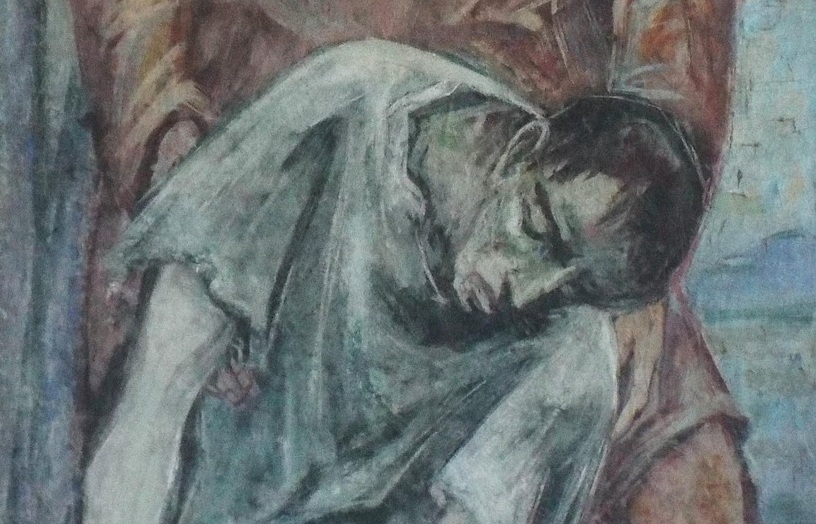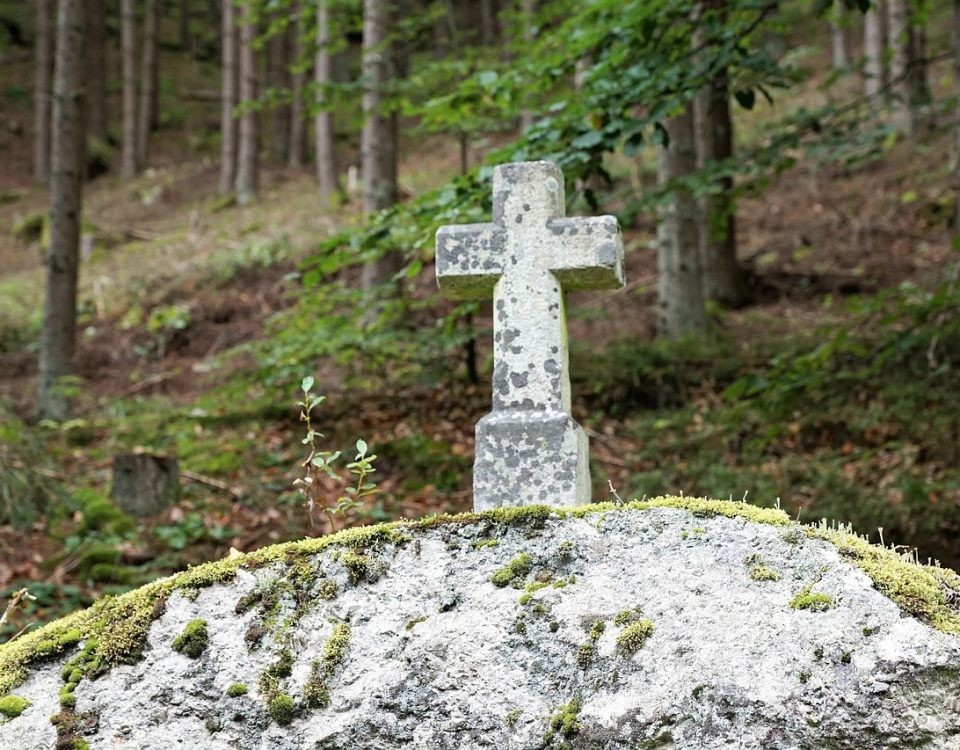I want to talk about that good and necessary part of our life together as a parish, and that’s about stewardship. I am preaching at most Masses this weekend—mainly because I like preaching but also because this is a really important matter for our life together.
But really my preaching will not be difficult, and hopefully not too long. You see, today’s preaching, for me at least, is more an occasion for joy and genuine thankfulness. Really, the most important thing I want to say to you today is Thank You. For truly what God is giving us in this parish—the graces and the blessings he’s giving us to share and enjoy—goodness gracious, it’s just beautiful, and I simply want to say Thank You, and let’s keeping going!
When I think of you, I think of Paul’s words to the Philippians. He loved that church deeply, as I love you, and the words he wrote to them, I use every day to give my thanks to God for you. He wrote to them, “I give thanks to my God at every remembrance of you, praying always with joy in my every prayer for all of you, because of your partnership for the gospel from the first day until now.”[1] That is what I think of you; that’s how I pray when I pray for you all. My prayer is just so full of thankfulness and joy; I mean it. You could be like the Corinthians to me, or God forbid like the Galatians, but thankfully you’re not. St. Rita to me is like the Philippians were to Paul—a family of love and grace and joy, a comfort to him and to me. And really, that’s the most important thing I want to say: thank you for that, and I love you for that, and I mean that.
And I think it’s joy and love mirrored in the vibrancy of the parish, or even in the beautiful family noise of some of our Masses. The parish is increasing in grace and graces; and what I mean by that is we are seeing more friendships form in this place, more people encountering God anew or more deeply in prayer; more people are celebrating the sacraments—going to confession, getting their marriages blessed, going to Mass more regularly. More men are taking their faith more seriously, strengthening themselves to be the men God called them to be for themselves and their families. And among our sisters: I don’t know, it’s just I get a sense of the strength of their holiness; young mothers, mothers and grandmothers, our holy single women; they are getting together, praying, finding strength in Christ and each other, and that sort of thing has changed the world before—and you can just feel it.
And our young people: our youth ministry is stronger than it’s ever been since I’ve been here. Young people want to draw near to the Lord in this place; it’s just happening in a way it hasn’t before. Some of them are thinking about the priesthood or the religious life; all of them are thinking about what God wants for their lives, which is no little thing in this chaotic, materialistic world. And our so-called young adults: well, they’re saints, and they’re throwing us all a party next weekend, and I hope you all can come.
And the beautiful thing is that’s just what parish life is. We gather around this table, this Altar, day by day or Sunday by Sunday, to hear God speak and then to eat his Body and Blood and thereby become the people of God, a new family of God, what Aristotle called friendship, but he didn’t know the half of it. We become in this place sisters and brothers; and my point is I think that’s a wonderful way to get to heaven, walking together with all of you—all of us, every one of us pilgrims together.
But parish life is also good for you in this life too. It’s also good for the community, for this city, the nation and the world. And as they say, we have the data to prove it. I just finished reading a new book by Maureen Day called Cultural Catholics. Maureen is a professor of religion and society, and the book is a lovely and empathetic snapshot of Catholic parish participation, both frequent and infrequent. And at one point in her book, drawing on the work of other social scientists, she lays out the evidence that suggests that, believe it or not, being religious is associated with neighborliness; that the more religious you are the data suggests you’re more likely to be a nicer person, more likely than a non-religious person to volunteer to help the needy more, more likely to donate to both religious and secular charities, more likely to vote and get involved civically, more likely to practice empathy.[2]
But, of course, none of that is magic, none of it perfect either; yet it does come from God and from somewhere else: the words we’re looking for here are community, parish, families, friendships; gather, worship, serve, renew. Here’s how Maureen Day puts it:
Having close friends at church, having religious conversations frequently with friends and family, and belonging to small church groups are the most important predictors of…prosocial behaviors and attitudes…In fact…findings suggest that even an atheist who happened to get involved in the social life of a congregation (via a spouse or a parent, for instance) is much more likely to volunteer at a homeless shelter than someone who is a fervent believer but only prays in the solitude of their home.[3]
You understand this; many of you understand this. What is the good of belonging to a parish, joining a ministry, eating dinner here on Wednesday nights, going to the men’s group or the women’s group on Thursdays, nudging your kid to try youth ministry, going to Mass regularly? What’s the good of it? Why does it feel like it’s a good thing to do? Because it is a good thing to do—for the soul and body, society too. And I just want to thank you for making it all go—especially you fellow ministers of Christ who make it all go in this parish; there are jewels in your crowns for it. But I also want to invite those of you still on the threshold, who haven’t yet leaned into it: we love you, come on in a little farther; the parish can help you. It really can.
But I also need to talk about money. Any family, any community costs money to operate, and that’s true here too. But, of course, giving to your parish is not primarily transactional; it’s spiritual. God calls you to give to the Church in proportion to your means plus a little sacrifice.[4] It’s a call to each and every one of us; go home and read Acts 5, for instance, and then ask yourself if you really think you’re exempt from contributing to the Church. No one is exempt. We are all called to share—time, talent, and treasure as they say; all three of those things, not just one or two. And this parish answered the call last year beautifully: over 80 families gave above $10,000; 230 families gave over $5,000; hundreds of you increased your giving a couple hundred dollars or so; so many of you increased your giving as you were able. And that makes a huge difference and thank you! Please keep it up! And, believe it or not, please increase your giving if you can—fifty or a couple hundred, a few thousand if you’ve got the means. Again, we’ve got the data on it: the people who give more are happier; it’s called the “paradox of generosity.” Even chemically, in the brain, generosity causes us to feel pleasure; it reduces stress. And I would love for more of us to experience that paradox.[5] Because it’s a real thing, and it’s beautiful. But it can’t be a one-off act of generosity for it to work like that. It must be practiced; it must become habit, a part of your life.[6]
And the reason for the ask is simply this: this beautiful community that is struggling every day to become an even more beautiful community. Now I know there are important politics going on in the world at the moment; and it is important, and we can talk about that at another time and another place if you want. But I’ll be honest, this is the more local politics that interests me—to build a community full of the love of God and neighbor, here in this little place, come what may.[7] As a parish priest, that’s my job, and I love it.
Which is really, as I said, why I’m just so grateful to you. Thank you again; and again, I love you. Let’s keep going. Let’s have fun and love each other and begin heaven, at least a little bit, here together—as a parish, as real friends in God. Amen.
[1] Philippians 1:3
[2] Robert Putnam and David Campbell, American Grace, 443-492
[3] Maureen Day, Cultural Catholics, 44-50
[4] 2 Corinthians 8:1-15
[5] Christian Smith and Hilary Davidson, The Paradox of Generosity, 56
[6] Ibid., 96
[7] Matthew 12:28-34
© 2024 Rev. Joshua J. Whitfield










